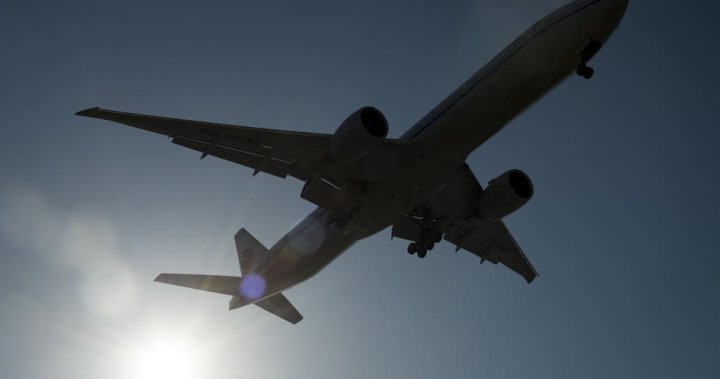
Airlines, industry join together to spur sustainable jet fuel growth in Canada
Global News
A new organization aims to spur Canadian development of sustainable aviation fuel, a technology advocate says is the industry's best shot at reducing greenhouse gas emissions.
A new organization aims to spur Canadian development of sustainable aviation fuel, a technology advocates say is the airline industry‘s best shot at reducing its greenhouse gas emissions.
The Canadian Council for Sustainable Aviation Fuels (C-SAF) was launched Wednesday by a consortium of 60 airlines operating in Canada, both domestic (Air Canada, WestJet Airlines Ltd) and foreign-owned (British Airways, Cathay Pacific).
The group’s members also include airports, research institutions, and jet fuel producers and refiners.
Geoff Tauvette, executive director of C-SAF, said the organization’s mission is to develop targets and a strategy for a made-in-Canada sustainable aviation fuel industry.
“There is very little (sustainable aviation fuel) being used right now in Canada, not even a significant volume being produced today in Canada,” Tauvette said.
“But there’s a global race going on, and we would like to get the right processes in place and get it rolling to ensure we get a piece of the pie.”
Sustainable aviation fuel, or SAF as it is referred to in the industry, is non-petroleum based jet fuel made from renewable materials. Feedstocks can be anything from corn sugar to used cooking oils to organic municipal waste or even algae.
While SAF doesn’t eliminate aircraft emissions entirely, it is a lower-carbon solution that can reduce carbon dioxide emissions by more than 85 per cent compared with conventional jet fuel. It’s also a “drop-in” fuel, meaning it doesn’t require changes to aircraft or any special infrastructure at airports.

 Run 3 Space | Play Space Running Game
Run 3 Space | Play Space Running Game
 Traffic Jam 3D | Online Racing Game
Traffic Jam 3D | Online Racing Game
 Duck Hunt | Play Old Classic Game
Duck Hunt | Play Old Classic Game

















